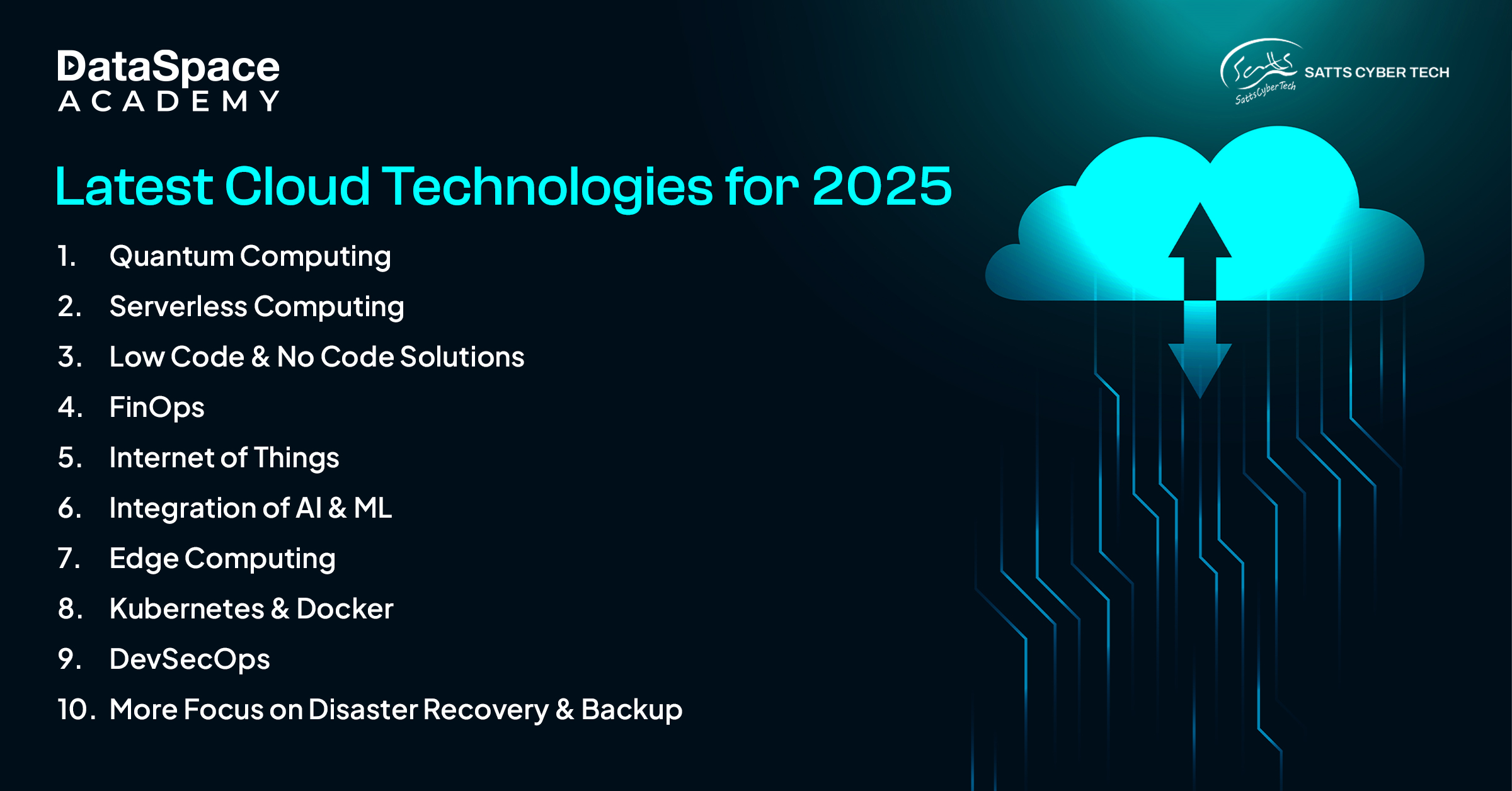With the rapid growth of cloud adoption, emerging trends in cloud computing are surfacing to meet the changing needs of global enterprises. A report by
Gartner has claimed, “Cloud will become a business necessity by 2028”.
Additionally, the advent of AI has further spiked the adoption of cloud computing- enabling businesses to foster innovations, create market disruptions, and gain a competitive advantage over others. Hence, businesses need to stay updated with the emerging cloud computing models to unlock business value at scale.
Let’s unlock the potential of new cloud technologies and trends in this informative guide.
The skyrocketing adoption of cloud services can be attributed to the growing requirements and expectations of modern businesses, which are focused on reducing operational costs and enhancing profits within unmatched security frameworks. Considering the current rapid pace of cloud adoption, experts predicted a promising horizon in cloud investment that could potentially exceed $1,266.4 billion by 2028.
Prime factors behind the growing adoption of cloud:
If you want to harness the maximum potential of cloud computing for your business, it’s essential to stay updated about the latest trends in cloud computing.
 So, what are the Main Cloud Technologies and trends of 2025? Let’s explore.
Leading technology giants like IBM, Microsoft, Google, and Amazon are proactively investing in quantum computing to solve complex problems at unprecedented speed. Quantum computing mechanisms utilise qubits for super-computational performance without the need to own a physical quantum computer. In other words, the cutting-edge technology allows superior scalability, which eventually renders broader accessibility in the cloud world.
Serverless computing surfaced as a boon for businesses, courtesy its ‘serverless’ scalability and pay-as-you-go conveniences. With ‘serverless computing, ’ developers are no longer required to buy and manage servers, which automatically reduces the operational costs.
Low-code and no-code cloud solutions bring democratisation as a part of the
So, what are the Main Cloud Technologies and trends of 2025? Let’s explore.
Leading technology giants like IBM, Microsoft, Google, and Amazon are proactively investing in quantum computing to solve complex problems at unprecedented speed. Quantum computing mechanisms utilise qubits for super-computational performance without the need to own a physical quantum computer. In other words, the cutting-edge technology allows superior scalability, which eventually renders broader accessibility in the cloud world.
Serverless computing surfaced as a boon for businesses, courtesy its ‘serverless’ scalability and pay-as-you-go conveniences. With ‘serverless computing, ’ developers are no longer required to buy and manage servers, which automatically reduces the operational costs.
Low-code and no-code cloud solutions bring democratisation as a part of the emerging cloud computing trends
, enabling businesses to develop applications faster with minimal technical expertise. Users can now create applications with low-code & no-code solutions using visual interfaces, extending cloud convenience even for non-technical professionals.
This emerging cloud technology is revolutionising the way companies manage costs by allowing organisations maximum visibility and control over cloud spending. Leading organisations leverage popular FinOps platforms like AWS Cost Explorer, Google Cloud’s Billing Reports, and Microsoft Azure Cost Management to efficiently track, forecast, and allocate cloud expenses.
With IoT becoming indispensable in our lives in the form of wearables, smart homes, and self-driving cars, these devices are becoming a massive data mine. So, what is the most efficient way to manage such a mammoth volume of data? Cloud is a secure portal; its cloud-based data analytics solutions and hyper-scaling servers allow effective data processing at a fraction of the time it used to take previously. The whole process eliminates the expenses and complexities of building IoT from scratch.
AI and ML, powered by cloud computing, are reshaping industries by enabling scalable, cost-effective solutions for data processing, training, and deployment. Cloud platforms simplify complex AI tasks, driving automation, personalisation, and innovation in today’s digital transformation landscape.
Edge Computing stands out for reduced latency thanks to its decentralised model. The other major benefit is surely improved cloud responsiveness. As IoT adoption rises and telecom meets IT, edge computing enables faster analysis, better traffic control, and broader deployment of agile cloud applications.
Docker and Kubernetes are among the latest cloud computing trends 2025 that revolutionise cloud computing with efficient application deployment, scalability, and management. As core cloud technologies, they streamline workflows, boost resource use, and support digital transformation, making them essential in modern DevOps and cloud-native application development.
While cloud computing enhances data management, it also poses security risks like intrusions and attacks. Businesses hesitate due to these threats. This is where DevSecOps emerges as the latest solution that addresses such risks by integrating automated security from the start.
With cloud computing, businesses can automatically store essential data off-site, enabling quick recovery from disasters like system crashes or cyberattacks. A strong cloud-based backup strategy protects organisations from losing valuable information and ensures smooth operations during emergencies.
Cloud is ever-expanding and booming with trends that can significantly transform your business to reach unexpected heights. Modern businesses can’t get enough of new cloud technologies to reap the rewarding benefits. So here is your chance to be the next most demanding cloud professional by enrolling in DataSpace Academy’s Cloud Computing Certification Course Online.
There are 4 main types of Cloud - public, private, hybrid, and community clouds.
Cloud computing has vast applications across various sectors. From securely storing personal files to managing data and running complex business applications, cloud computing is the ultimate solution for all major business concerns.
To become the most demanding cloud engineer, one needs to master dynamic cloud computing skills and interpersonal abilities. Aspirants with a science specialisation, preferably computer science, programming, have an advantage in mastering advanced cloud computing skills. Kickstart your journey today.  So, what are the Main Cloud Technologies and trends of 2025? Let’s explore.
So, what are the Main Cloud Technologies and trends of 2025? Let’s explore.